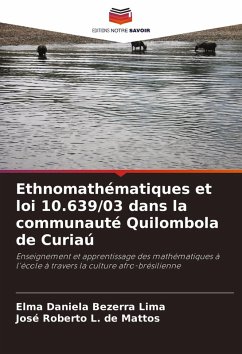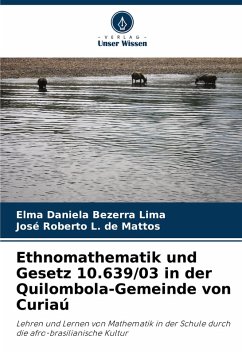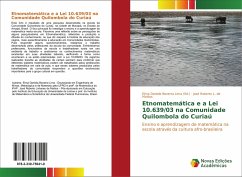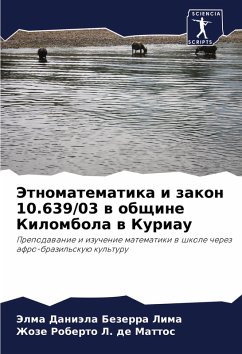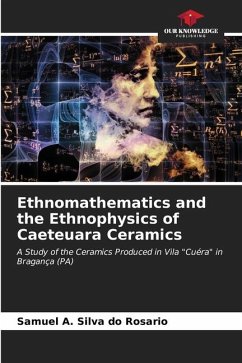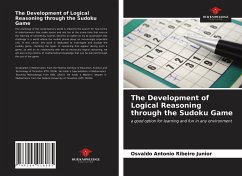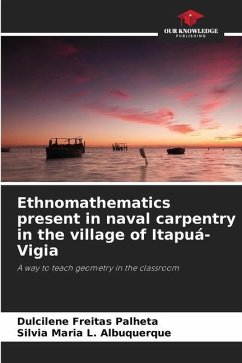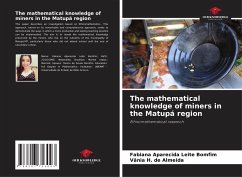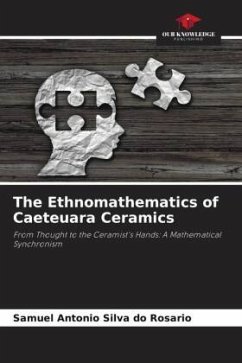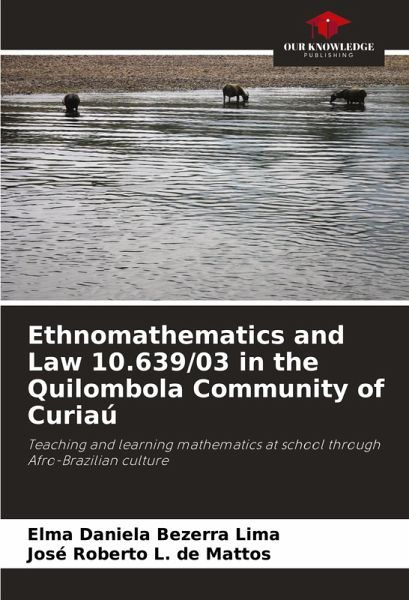
Ethnomathematics and Law 10.639/03 in the Quilombola Community of Curiaú
Teaching and learning mathematics at school through Afro-Brazilian culture
Versandkostenfrei!
Versandfertig in 6-10 Tagen
16,99 €
inkl. MwSt.

PAYBACK Punkte
8 °P sammeln!
This book is the result of research carried out in the school of the Quilombola Community of Curiaú, in the city of Macapá, in the state of Amapá, Brazil. The main focus was to investigate the teaching and learning of mathematics in this school. We reflect on the perceptions of some researchers in Ethnomathematics, regarding the production and dissemination of knowledge, with regard to the history of black education, more specifically education in Quilombola Communities. To answer some of these questions, we reported on the work carried out by teachers at the community school. We interviewe...
This book is the result of research carried out in the school of the Quilombola Community of Curiaú, in the city of Macapá, in the state of Amapá, Brazil. The main focus was to investigate the teaching and learning of mathematics in this school. We reflect on the perceptions of some researchers in Ethnomathematics, regarding the production and dissemination of knowledge, with regard to the history of black education, more specifically education in Quilombola Communities. To answer some of these questions, we reported on the work carried out by teachers at the community school. We interviewed teachers, school staff and rural workers in their work environment and analyzed the mathematical knowledge that exists in their work activities, checking how it happens and whether it is related to Law 10.639/03. The records made during the field activities served to confirm that different mathematical knowledges can be worked on by math teachers in the classroom, and that these knowledges produced by the workers in the community answer important existential questions for the cultural group in question.





